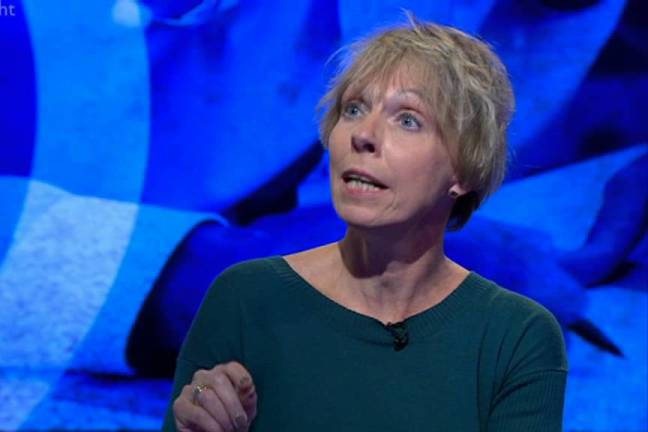Regular readers of NRL News Today are fully aware of how prominent is the agitator role of the pro-abortion to the gills Irish Times. It works ceaselessly to undermine Ireland’s protective abortion laws and is cheerleader in charge of the campaign to have wording in next year’s referendum that will thoroughly undercuts the Eighth Amendment to the Irish Constitution which acknowledges the equal rights of women and unborn children.
So it comes as no surprise that Fionola Meredith cranked out a gushing review of The Moral Case for Abortion, by Ann Furedi. But even I was surprised by the lengths to which Meredith went to glorify the book written by a prominent pro-abortion entrepreneur.
Meredith is much taken with Furedi’s refusal to rely on a rights-based or health-based justification for abortion. “Pro-choice advocates have for too long allowed opponents of abortion to monopolise the discourse of morality, according to Furedi,” Meredith muses. “Furedi says that it is time to put pragmatism to one side and mount an assault on the higher moral ground.”
Of course the “higher moral ground” for Furedi, the head honcho of the British Pregnancy Advisory Service (which was responsible for more than one in three abortions in England and Wales–66,000 to be more precise), is nothing so mundane as a religiously-informed understanding or even a (lame) ethical argument. It is taking her own pulse.
As Meredith explains it, Furedi is saying that “abortion can be a defining act of selfhood which affirms a woman’s status as an autonomous human being.” Meredith then quotes this dozy from The Moral Case for Abortion:
“Too often choice is described as some kind of consumerist indulgence,” [Furedi] says. “But the choices we make, the way we determine where we go in life: this is what shapes us, makes us the people that we are. To take away that decision-making is to take away part of our humanity.”
Abortion is already essentially abortion on demand in England but she wants it completely “decriminalized”–and don’t worry about an increase in late, late abortions. In typical abortion-speak, she insists it would “offensive” to women to suggest that removing all limitations, however minimal, will result in a “free for all.”
But, just so we’re clear, Furedi would never say never. So the free-for-all wouldn’t happen, but if it, so be it.
Furedi gets some congratulations from Meredith for being blunt. “While opponents of abortion speak frequently of ‘killing,’ it is unusual for an advocate of choice to use the word. So why does Furedi deliberately employ it?,” Meredith asks.
“Well, it would be far more diplomatic to say ‘end the life of’ rather than ‘kills’,” Furedi says. “But I don’t think it helps to obfuscate or be mealy-mouthed. That creates the impression that you want to draw a veil over what happens. You have to be prepared to be quite blunt. It’s not for shock value.
But euphemisms and poorly reasoned arguments and non-sequiturs are the coin of the realm in The Moral Case for Abortion. Meredith writes
The foetus may be human in a biological sense, she argues, but not in the sense that matters morally. Furedi does not dismiss the status of the embryo entirely. She thinks that we can acknowledge that it is special, and worthy of respect as a “biologically unique entity”, even if we believe its life can be ended. Yet ultimately, for Furedi, “our humanity is more than the sum of our biological parts”.
Click here to sign up for pro-life news alerts from LifeNews.com
Put another way
“The end of a life in the womb does not compare with infanticide, euthanasia or any other taking of human life,” she writes. “Abortion does not assault an individual that is living a biologically independent existence of its own. Whatever the foetus experiences, it is not human life as we know it, with its joys and sorrows, fears, hopes and expectations. It knows nothing of itself, nor of others. And others know nothing of it.”
Two points. First, it is the “right” to make decisions that makes us who we are. I get Furedi’s argument.
So I ought to have the right to make life-and-death decisions for others who are wholly dependent on me? Like my newborn, aka infanticide?
No, no, no, Furedi insists.
Second, what does a one-day-old baby “know” that an unborn baby in the 8th or 9th month doesn’t? How is the newborn living a “biologically independent existence of its own”?
Answer? She isn’t. This smacks of the Peter Singers of this world who are incapable of making a rational argument (assuming they ever wanted to) against infanticide or euthanasia.
And, oh by the way, she is squishy on infanticide, as we have written previously.
Finally, in her essay published earlier this year in the Daily Mail, the one that Meredith alludes to, the newspaper ran multiple headlines to give the reader a flavor of Furedi’s “anything goes” approach:
Abortion is just another form of birth control, pregnancy clinic boss said
She also argued abortion should be as freely available as contraception
Said there is no moral difference between having an abortion and marriage
Pro-abortionists adore Furedi (1) for saying what they really believe and (2) for providing the added benefit of being so extreme it allows them to portray themselves as positively moderate.
There is no “moral case for abortion.” What there is is a woman whose thirst for abortion on demand is unquenchable.
LifeNews.com Note: Dave Andrusko is the editor of National Right to Life News and an author and editor of several books on abortion topics. This post originally appeared in at National Right to Life News Today —- an online column on pro-life issues.








